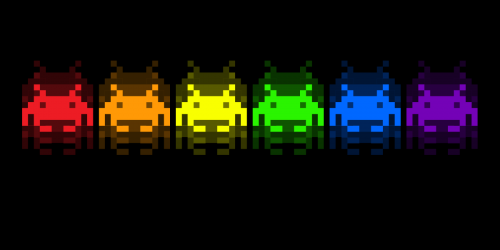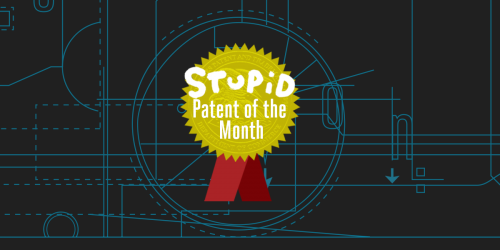What's a trademark for, anyway? Given recent trends, you might be surprised to learn that trademarks are supposed to protect consumers from confusion about the source of goods or services. You might also be surprised to know that common, descriptive words and phrases usually cannot be registered as trademarks, not least because we don't want trademark owners claiming property rights in our common language. That's why an apple farmer can't claim a trademark in the term "apple."
Unfortunately, folks can't seem to help making overreaching claims, and the Patent and Trademark Office (PTO) isn't vigilant about what passes muster. The result: generic terms are registered as trademarks—and then used to threaten free speech.
Case in point: the ongoing threat to Reddit's /r/gaymers community.
Here's the back story: In 2003, Chris Vizzini created the site Gaymer.org, a blog about the gay gaming community. A few years later, he sought to register a trademark in the term, effectively claiming exclusive rights to use of the term in connection with a variety of online activities. Unfortunately, the PTO allowed the registration. Vizzini then sent the popular online community Reddit a cease and desist letter, alleging that the online forum infringed on his trademark. Reddit, Vizzini claims, is using "gaymer" in the "marketing, sale, distribution or identification of its products and/or services."
Of course, "gaymer" had been around long before Vizzini claimed a trademark in the term. In fact, this reddit post noted a few examples, including a 1997 Usenet post. A blog post about gaymers from 2002—a year before Vizzini founded his site—even begins, "It is time to add new words to your gamer lexicon." Today, the term "gaymer" has widespread use—for example, the upcoming GaymerCon conference, which is slated to draw thousands of attendees.
In short, the term describes a group of people and a set of practices. It doesn't belong to any single business, and it is a shame the PTO didn't recognize as much. What's worse is that this is hardly the first time the PTO has signed off on spurious trademark registrations, with dangerous consequences for free speech. A few years ago, for example, the Dervaes Institute registered a trademark in the common term "urban homesteading." The Institute then sent complaints to intermediaries such as Facebook, challenging the use of the phrase by a variety of publishers and authors. Those complaints caused perfectly legal speech to be taken offline, with no easy path to restoration.
Aside from the question of whether "gaymer" should have been accepted as a trademark in the first place, Vizzini's approach is a reminder, if one were needed, that legal threats are rarely the best way to build a business. There are a number of ways to protect one's brand that don't depend on erecting legal walls around common terms. Distancing oneself from a strong, active, and user-generated online community of over 17,000 members is definitely not one of them.
This dispute is still pending, and we may yet see a sensible resolution. We urge Reddit and its users—who have a strong history of standing up against overreaching IP rights claims—to resist Vizzini's threats. The PTO may have been asleep at the wheel this time, but it's not too late for others to restore some sanity to trademark law and practice.








